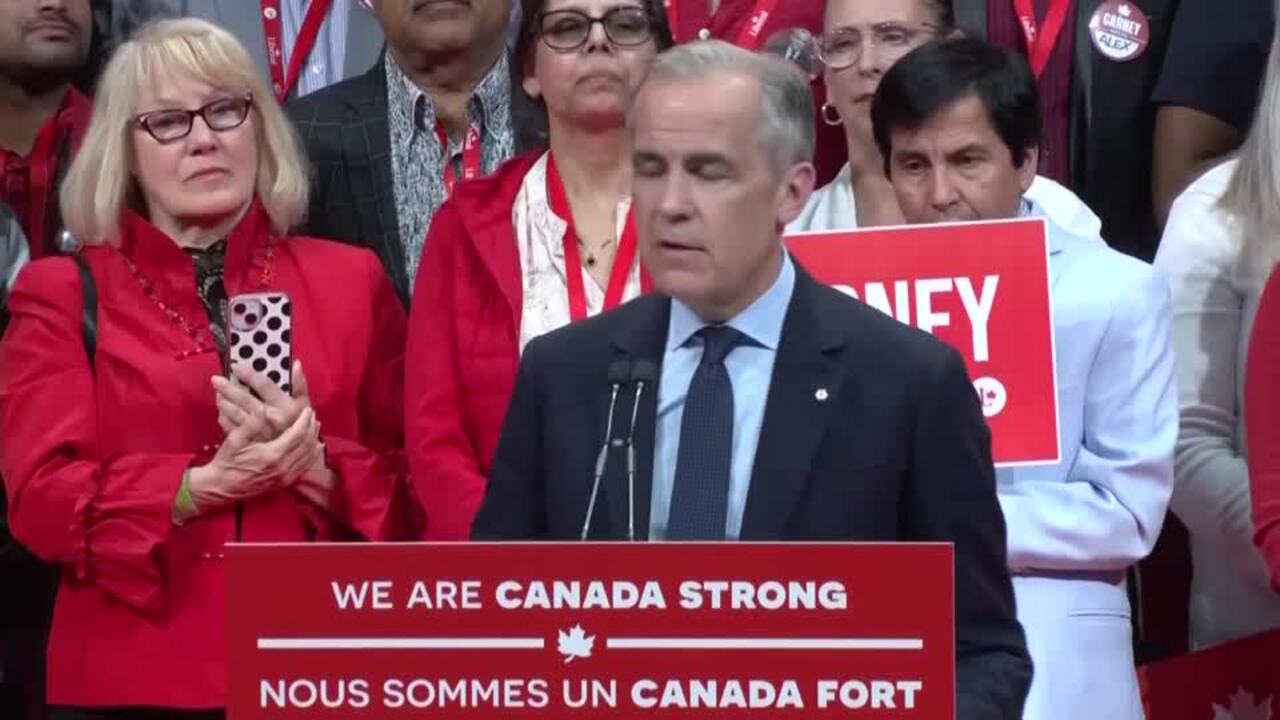Mark Carney wins, but must chart a new direction for Canada


Canada’s newly elected Prime Minister Mark Carney should send a thank you card to Donald Trump after winning a historic fourth term for the Liberal Party, but faces a momentous task in leading the resistance to US President’s “American First” agenda.
The Liberals, who last year were polling 20 points behind Pierre Poilievre’s Conservatives, could never have secured the historic come-from-behind win without Trump. The US President knows this, declaring days before Canadians went to the polls that “I’ve thrown the election into a close call.”
Carney now faces an audacious political challenge: he must move quickly to chart a brave new course for Canada. And he will most likely need to do so from a minority government position.
This will involve reducing Canada’s reliance on America, diversifying its trading partners, removing the tariff threat posed by Trump and reaching a new economic and security compact with Washington grounded in the recognition of Canadian sovereignty.
But there is little sign that Trump will change his approach to Ottawa or his demands that Canada become America’s 51st state. Grasping the meaning of the Trump 2.0 era, Carney has told Canadians that the world has changed and accused Washington of betrayal.
Canada’s election result is a stunning example of the “Trump effect” in full force. Instead of opting for change, Canadians opted to stick with the government to manage a dangerous and uncertain era.

Under the leadership of Justin Trudeau, the Liberals were last year facing an electoral wipe-out with Poilievre gaining a major lead after running on cost-of-living, inflation, housing affordability, lower immigration and expanding energy projects.
While important, these were not the issues that determined the election. Trump was the decisive factor and Carney seized on the political opportunity presented by the new administration in Washington.

In his victory speech, Carney asked who was “ready to stand up for Canada with me” and warned that the world had “fundamentally changed”.
“As I have been warning for months, America wants our land, our resources, our water, our country,” he said. “Never.
“These are not idle threats. President Trump is trying to break us so that America can own us. That will never ever happen,” he said. “We also must recognise the reality that our world has fundamentally changed.
“Throughout our history there have been turning points where the world’s fortunes have been in the balance,” he said. “We are once again at one of those hinge moments in history. Our old relationship with the United States … is over. The system of open global trade anchored by the United States … is over.
“These are tragedies. But it is also our new reality,” he said.
Carney said he would seek to negotiate with Trump, but stressed that recognition of Canadian sovereignty was essential.
Conceding defeat, Poilievre – who made clear he wanted to stay on as the Conservative Party leader – said there would be bipartisanship in ensuring Canada was able to stand up to Trump.
Poilievre said he would work with Carney on achieving the common goal of “defending Canada’s interests and getting a new trade deal that puts these tariffs behind us while protecting our sovereignty and the Canadian people”.
“We are cognisant of the fact that we didn’t quite get over the finish line. We know that change is needed, but change is hard to come by. It takes time. It takes work,” he said. “We will always put Canada first.”

There is no doubt Trump has loomed far larger over the Canadian election than he has over the Australian contest. Yet there are lessons for Canberra.
The Carney victory is a reminder of what political strategists in Canberra already know – the Trump effect has galvanised support for Labor and wrong-footed the Liberals.
Andrew Robb, a former Liberal Party federal director and trade minister who secured free trade deals with China, Japan and South Korea, reflected on the ability of Trump to massively influence foreign elections – including in Australia.
He did not offer any view on the likely election outcome on Saturday but acknowledged that Trump had changed the tenor of the political contest in Australia.
“The associated uncertainty and anxiety that has been generated has meant that the sentiment of ‘the devil you know rather than devil you don’t’ got introduced into the (Australian election) campaign very early. By Trump,” he said.
The Coalition campaign, Robb warned, had been “Trumped in the first week.”


